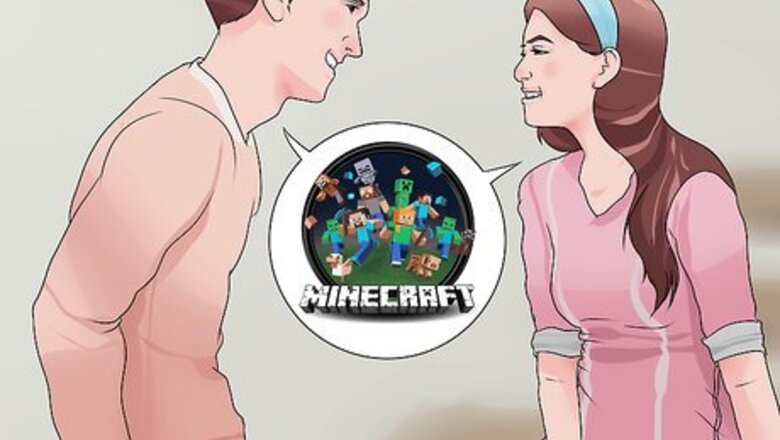
views
X
Trustworthy Source
Austistic Self Advocacy Network
Nonprofit organization run by and for individuals on the autism spectrum that empowers autistic people through education and public advocacy
Go to source
[2]
X
Research source
Meeting a Potential Girlfriend
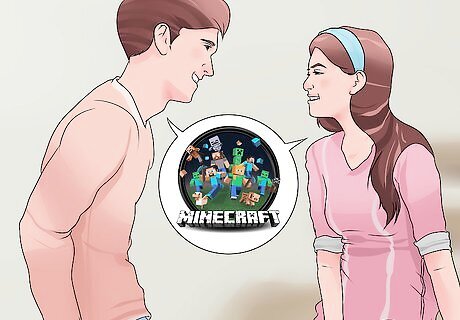
Meet someone through common interests. One of the simplest way to find potential partners is connecting with people through things you both like to do. This works for both neurotypicals and people on the autistic spectrum. One of the main features of people on the autistic spectrum is the "special interest" and it may be either easy or difficult to find somebody that shares your special interest. This gives you a built-in conversation starter that is a good foundation for a date. Try finding groups doing things you enjoy through websites like Meetup or by taking a local class. Think about social activities you already attend. Do you know anyone that you might be interested in developing a relationship? Think unconventionally. Social settings don’t have to be physical. Video games, like Minecraft, can be great ways to build community and meet people with similar interests without the pressure of face-to-face first interaction.
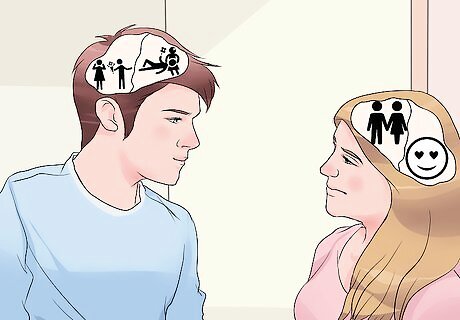
Practice reading neurotypical social cues if the woman you are pursuing is neurotypical. Although, ultimately, you want to find someone who accepts your communication style, initially you may need to learn to flirt and understand how to tell if someone is interested. Watch television shows and movies to get an idea of these cues but know that these depictions aren’t always realistic. Make or feign eye contact for a few seconds, then break it. Try to notice if she seems to be making eye contact with you, as this may mean she likes you. Smile slightly. You should smile at the person you like, but make it a small smile, and turn away after a few seconds. Act confident. Even when you’re nervous about whether someone likes you, act like you aren’t nervous at all.

Find a mentor. Ask a friend, relative, or teacher to help you get ready to date. Pick a friend who has good experience in the dating world. If you're anxious about your conversation skills, you can role-play, or even do a practice date. Ask your mentor what they look for in a partner. What are you doing that they would find odd on a date? What would they like? Tell them you appreciate their honesty. Appreciate your friends or mentors advice on how to get a girlfriend. It might help to keep a notebook of dating tips.

Consider online dating. When you are autistic, it is often easier to express your feelings in writing than in person. Online dating can be a way to meet like-minded people in an environment that is safe and structured. Know what you want in a relationship. Are you looking for something casual or long-term? Be clear about this with yourself so you know how to proceed. Different dating sites suit different needs. Decide what dating site is best for you. If you want, there are even websites that match up people on the autism spectrum who would be compatible with each other. This can be a good way to ease some of the stress of reading neurotypical dating cues.
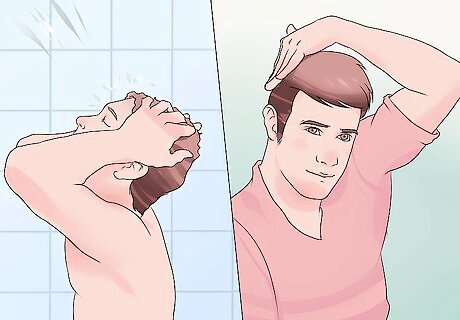
Maintain your appearance. When you start dating, you want to make sure you look your best. Bathe regularly and trim your hair and facial hair (if you have any). Wear clothes that are clean, ironed, and well-fitting. Don't be afraid to ask a fashion-conscious friend or family member to go shopping with you. They can pick out clothes that enhance your unique attractiveness.
Getting to Know Someone
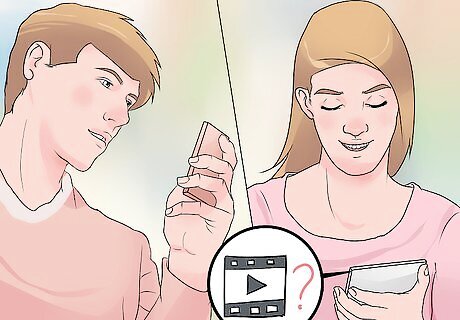
Start subtle. When you first ask someone out on a date, you want to seem casual so that you don’t come across too formally. Simply say something like “Hey would you like to go see a movie on Saturday?” Texting or online chat can be a great way to send your initial invitation. Ask your mentor to look over your message before you send it.
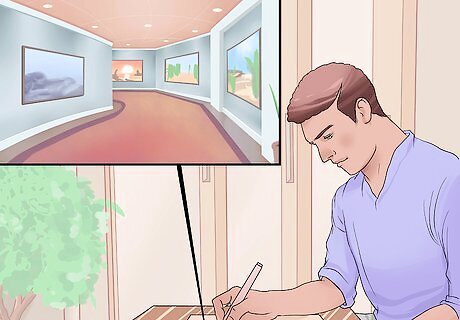
Plan out the date. This will help ease your nerves, and let you know what to expect on your date. Don’t feel like you have to pick a typical first date if you don’t want to. A bar might be too loud, and going to dinner might put too much pressure on small talk. Try an activity-based date. For example, if you like to bowl, invite your date to go bowling with you. When there are gaps in the conversation, you’ll be able to talk about your game. If you enjoy art, take her to an art museum. You’ll be able to talk about the art together, and the setting makes a little silence more acceptable. If you find somebody that shares your special interest, try setting up a date that is related to this special interest. Write down the plan for your date. Your date will most likely appreciate the initiative you took to plan it all out and find it romantic.

Let her talk. When you’re on a date, make sure that you let your date talk at least half of the time. As you are listening, nod your head occasionally and interject small statements like “that’s interesting” to let her know that you are actively listening. Ask open-ended questions, and if you ask yes or no questions, follow up with something open-ended. For example, if you ask, “Do you have any brothers or sisters?” and she says, “Yes, two older brothers,” say something like, “Oh, what are they like?” When your date asks you questions, don’t be too short with your answers but don’t take over the conversation, either.
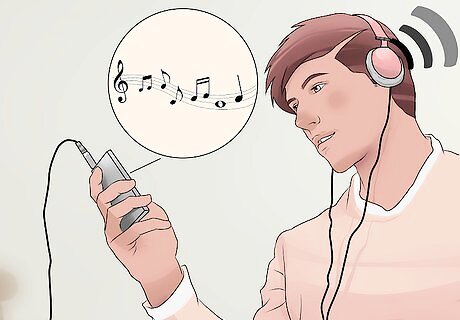
Find out her favorites. See what kinds of things she likes. What are her favorite movies, books, music, or games? What are her hobbies? After she tells you her favorites, go home and check them out. Listen to her favorite song, or read her favorite book. This will give you a better idea of what she’s like, and give you something to talk about on a second date.

Accept rejection if it happens. It’s painful, but remember that everyone goes through it at some point in life. Look around at people on the street. Are all of those people your type? Of course not. It doesn't mean anything is wrong with them; they just aren't right for you. Similarly, you might not be right for her, and that doesn't mean there's anything wrong with you. If you are anxious about being rejected, try coming up with a response in advance for rejection, such as saying "Okay, see you around then," and walking away. If you ask someone out online or with a written message, silence usually means "no." Don't respond further. Don’t give up after one rejection. Move on to someone else. Dating takes persistence. Being rejected just means that you two were a bad match. It doesn't have anything bad to say about you. You might feel vulnerable with non-autistic people or even non-disabled people, especially if you got bullied or have had bad experiences with your peers. It might be difficult for you to choose to date someone else. In the same way, it might be hard for a girl to date a boy if she's had bad experiences with boyfriends in the past, and some girls might feel vulnerable while dating a boy. So, be understanding that a girl might feel vulnerable with you in the same way you might feel vulnerable with your peers.
Maintaining Your Relationship
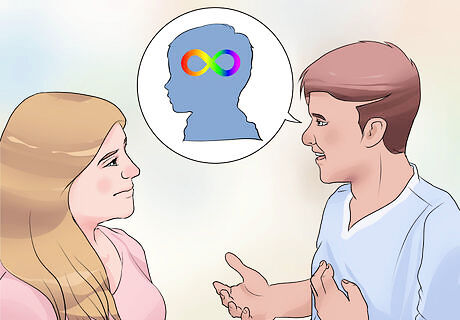
Explain your autism. When you feel comfortable, tell her about your disability, and explain how it affects you personally. If you’re dating a neurotypical individual, you’ll need to meet in the middle. Be prepared for a few awkward questions. Give honest, factual answers. Relationships are about both partners seeking to understand each other. Encourage your girlfriend to use online resources such as Autism Acceptance Month, the Autism Women's Network, and WikiHow to find out more about the autism spectrum. Show her that you can be an attentive partner, but sometimes social situations take a lot of effort for you.
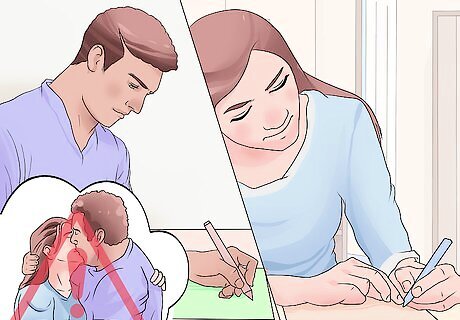
Keep boundaries clear. In any relationship, you need to have boundaries, both sexual and nonsexual, and autism can make reading cues like body language difficult. Clearly and non-judgmentally communicate your boundaries to your partner, and ask her to do the same. Ask your partner to honestly tell you what makes her uncomfortable and what she would like you not to do in the relationship. Likewise, tell your partner what makes you uncomfortable, as she might not be aware that you don’t like a small gesture from her. It might help you both to write these things down on a piece of paper or in a message. It can be easier to come up with boundaries in writing, and you’ll have them to refer back to later.

Give a compassionate response over a pure honest one. When you’re on the autism spectrum, you often value the truth and find it difficult to lie. This can be a good trait, but it may come across as too blunt in certain situations. Understand when it is best to give a small "white lie" so as to not hurt your partner’s feelings. For example, if your girlfriend comes home with a new dress, puts it on, and asks you if it looks good, you should say, “yes,” even if you don’t think so. In this situation, don't think of her question so much like she's asking your opinion of her dress, but more like she's happy in that dress and she's inviting you to share in that happiness with her. Furthermore, understand that your partner won’t always be blunt with you. This doesn’t mean that you should tolerate blatant lies, but don’t demand that your partner tell you every detail of her life.

Check in with each other. If you have a difficult time expressing your feelings sometimes, it can be a good idea to have a regular check in session every week. This might be over coffee or dinner. Try having a set of questions you always ask. This can be a sweet ritual for you as a couple and a good way to plan to stay in touch. It will make you both feel heard and valued. An example set of questions could be: What is something I did that made you happy this week? What is something I did that made you sad this week? What is something you would like us to do together next week?

Make gestures of affection. Consciously think about things you can do to make your girlfriend smile. Keep a list in your phone of things your girlfriend likes. If she says one day she likes peonies and a specific kind of chocolate, write it down. Every so often, check that list on your phone. Go out and buy her peonies and chocolate for no reason at all. Fill the list with details, especially at dates such as Valentine's Day (February 14), their birthday, etc.

Write letters. No matter if you’re on the autism spectrum or not, writing can be a great way to express how you feel to someone. Your letters can be hard copies or emails. Write down the things you like about your partner and let her read those things.The normal thing is writing letters in longhand. If you don't have a good handwriting, you can write them in a computer. In that case, use a font that's not so formal such as Brush Script or even Comic Sans.













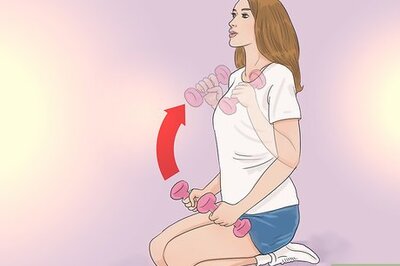

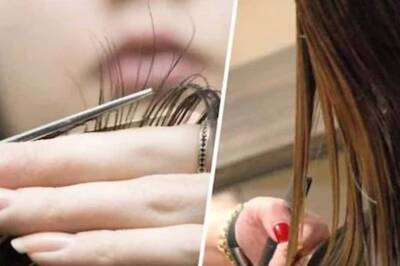




Comments
0 comment